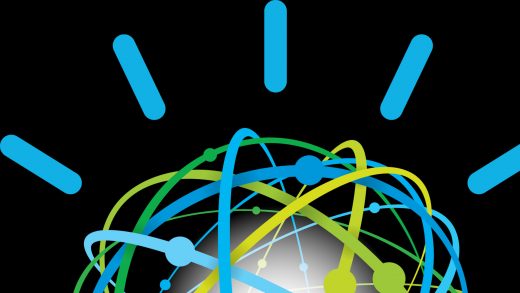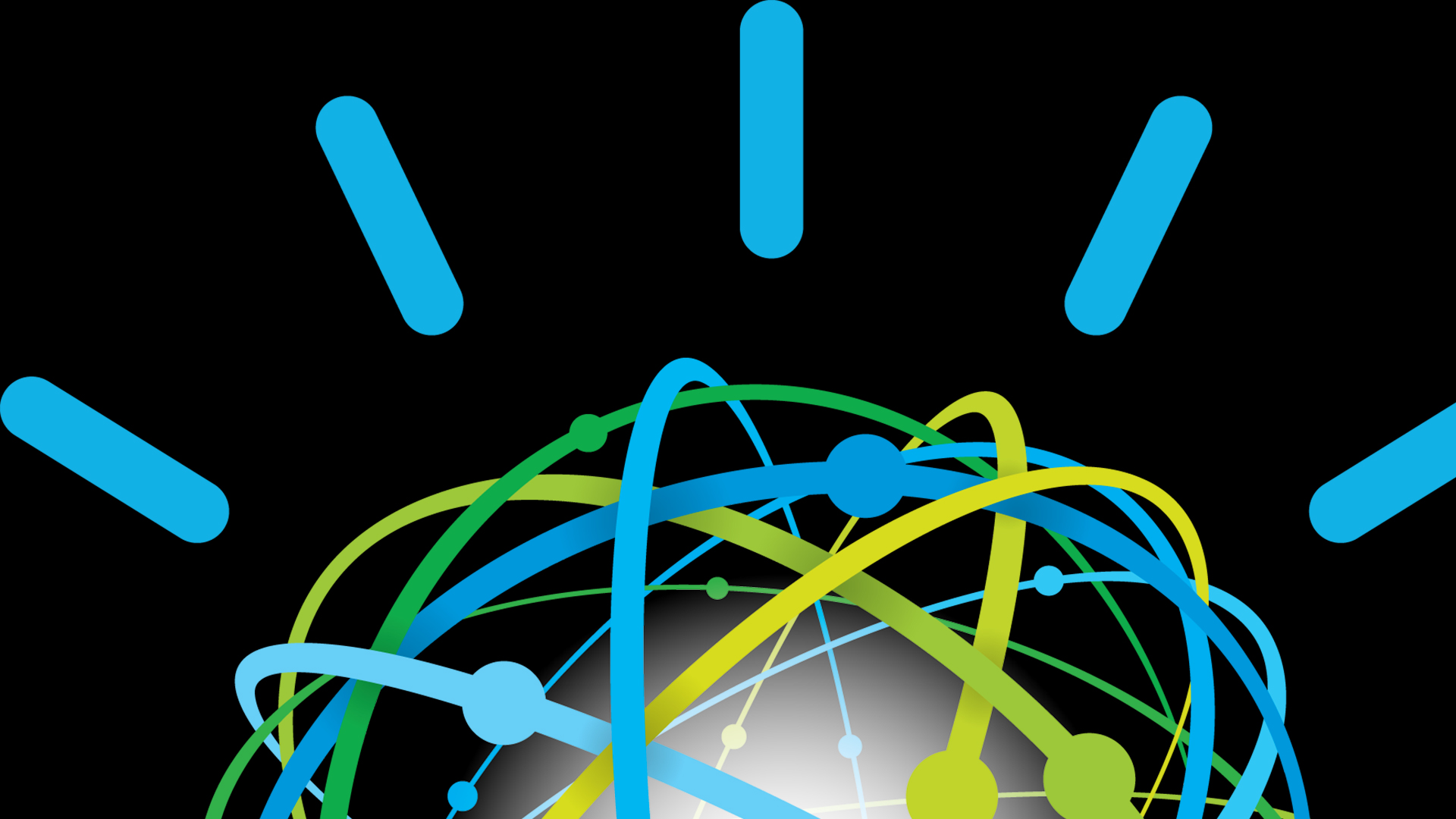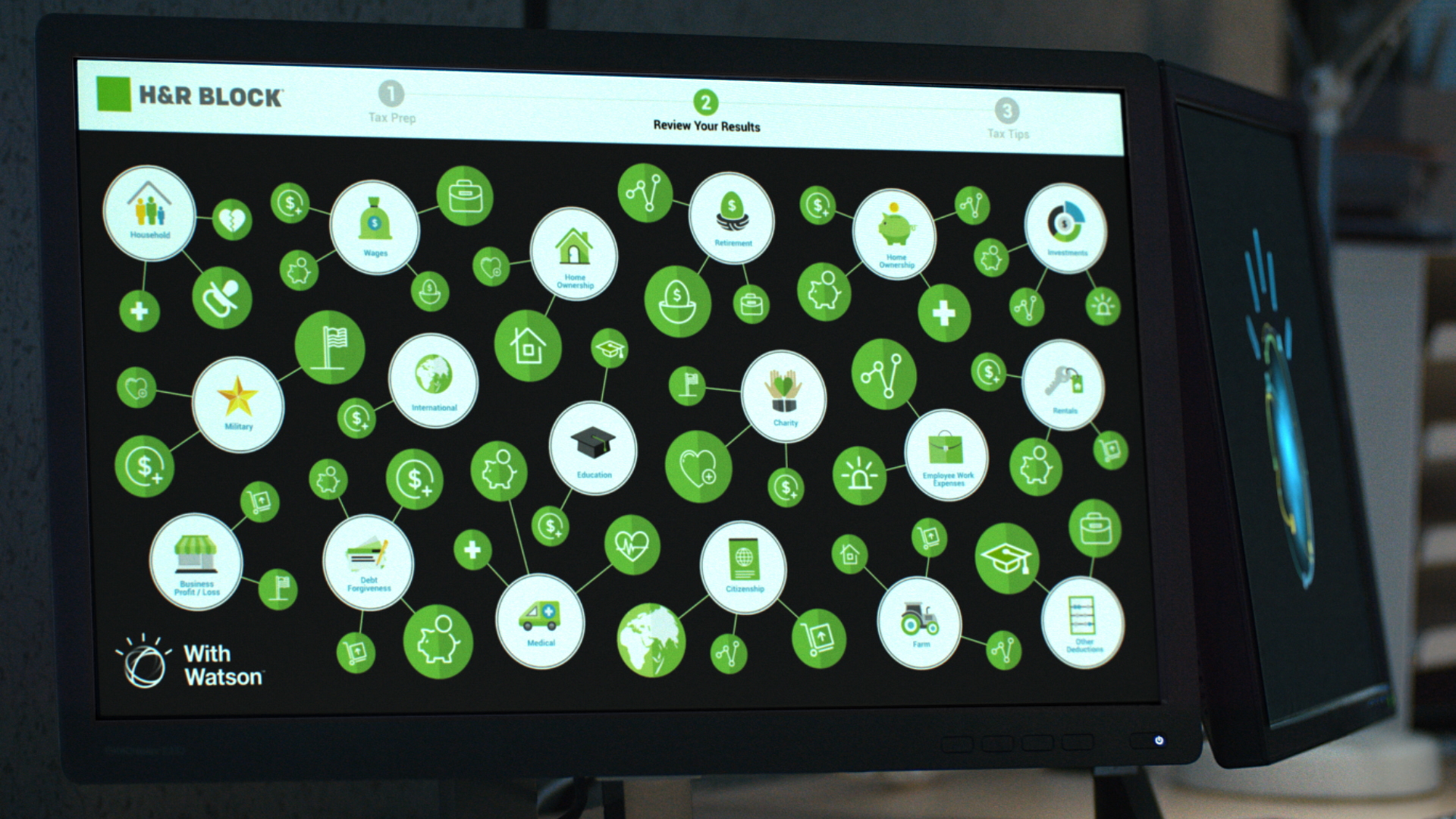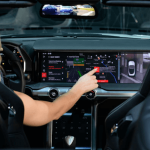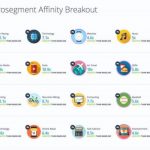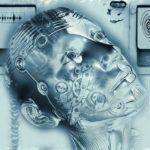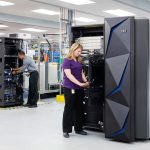IBM’s Watson joins H&R Block to explain taxes to humans
The cognitive computing platform is adding tax preparation to his seemingly endless resume of occupations.
IBM’s Watson — the cognitive computing platform that refuses to be pigeonholed — is now donning a green eyeshade.
That’s because he is setting up shop for the first time as a tax expert, a result of a new partnership announced recently between his parent company and H&R Block, the tax preparation company that essentially invented that industry more than 60 years ago.
As a result, the cloud-based Watson will be visually presenting tax issues to as many as 11 million clients who visit H&R Block’s 12,000 offices, while he is also looking over the shoulder of the tax preparers to offer advice. His new occupation was highlighted in a commercial shown in the first quarter of this Sunday’s Super Bowl, since his name adds a marketing advantage to any intellectually challenging endeavor.
At each office, a client sits in front of the desk of the Block tax preparer and watches on a client-side screen as Watson interprets the preparer’s ongoing notes on the conversation, typed into the merged Block-Watson system.
The idea is that Watson will parse the notes — looking for such signals as “bought new house” or “daughter born this year” — and will visually show icons and connections on the client’s screen that relate to their impact on deductions and refunds. At the same time, he will post messages on the tax preparer’s screen of any observations, based on his growing knowledge of the subject. Here’s a typical client screen after the end of a session:
His training for this role has been the tax-preparing equivalent of Rocky Balboa getting in shape for a heavyweight championship fight.
Possibly with the “Rocky” theme playing in his virtual head, Watson has digested tens of thousands of pages of the federal and state tax codes, the Block training manual, decades of notes by preparers and records of call center interactions.
Since September, he has been holding tryouts in selected offices, and that effort is now expanded nationwide.
Ed Harbour, IBM VP of Watson Implementation, told me that the computing platform “is not doing the job” of the tax preparers, but will be assisting them to guide the interview process while interpreting and illustrating the process for the clients. Unlike many computer systems, Watson thrives on interpreting unstructured data like preparers’ notes.
TurboTax and other self-preparation tax software programs also apply some level of computer intelligence to the annual task. (Watson is not part of Block’s own do-it-yourself tax software.)
And it’s not like the tax preparers have been unassisted by computer intelligence before Watson showed up. George Guastello, H&R Block VP of product management and client experience, pointed out to me that his company’s non-Watson personalized tax tips are based on over 600 million data points.
So what does Watson bring to this number-crunching party, aside from a nice slide show for clients?
Night and day
In other industries that he’s undertaken, there’s a night-and-day difference that a cognitive computing system like Watson can make.
For advertising, for instance, he can power ads that think.
In medicine, he can diagnose mystery illnesses because he recognizes patterns in vast medical records, and in retail sales, he has an encyclopedic knowledge of a large store’s inventory and a growing understanding of what’s hot. Even as an up-and-coming film editor, he is offering a different take on what makes a scary film trailer.
But the benefit he offers for tax prep beyond existing do-it-yourself software or experienced tax preparers with their computerized assistants — who collectively have completed over 720 million returns since 1955 — is not immediately visible.
IBM’s Harbour pointed to Watson’s ability to learn and detect patterns that mortals might miss. This learning will take place in the aggregate, across all the Block returns, as well as for each individual taxpayer. But the value of that learning may not be evident until it is digested for next year’s tax season.
And Guastello noted the combined advantages of this unusual team: cognitive computing champ Watson, the normal Block computerized tax tips and assistance and human experts interacting with each taxpayer.
“It’s hugely different from TurboTax,” he said, adding that “50 percent of the people using do-it-yourself software are leaving money on the table.”
Marketing Land – Internet Marketing News, Strategies & Tips
(55)

